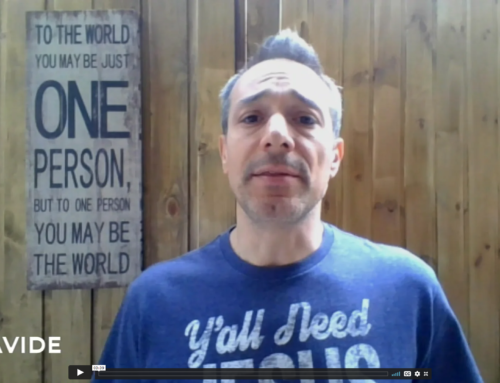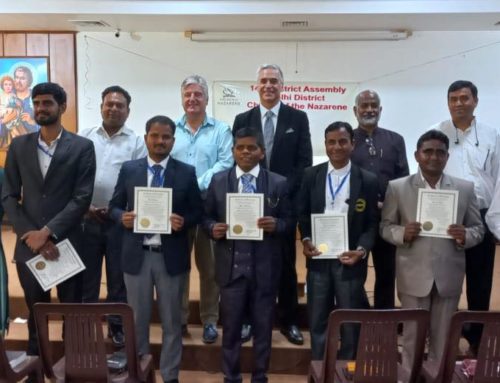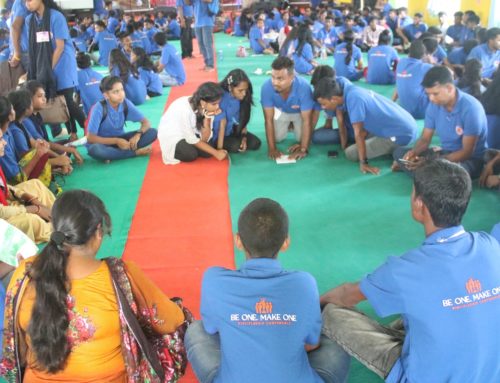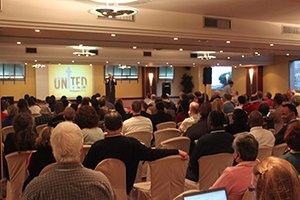 Spread throughout several rooms in a hotel in Barcelona, Spain, numerous groups of Nazarenes from across Europe gathered around cups of coffee to discuss how they could more effectively integrate discipleship into the life of their local churches.
Spread throughout several rooms in a hotel in Barcelona, Spain, numerous groups of Nazarenes from across Europe gathered around cups of coffee to discuss how they could more effectively integrate discipleship into the life of their local churches.
This was the objective of European Nazarene College’s annual Leadership Conference, held January 27-30, and attended by 150-170 people representing students and faculty, but also pastors, lay leaders and district superintendents.
The conference was held in collaboration with the Western Mediterranean Field (Spain, France, Portugal, Italy) and the Spain District, which are making discipleship a main focus for 2014. There were also attendees from the Northern Europe, Central Europe and CIS fields.
The sessions focused on different settings for discipleship, starting with the broadest level – corporate discipleship in the church setting – to discipleship in small groups, in the family and then between individuals.
“Discipleship is not ‘one dimensional’ (a course or a programme or a single church ministry),” said EuNC Rector Klaus Arnold. “All of church life and the personal Christian life is connected to discipleship — as Christians we are disciples all of our lives and in all the relationships we are in.”
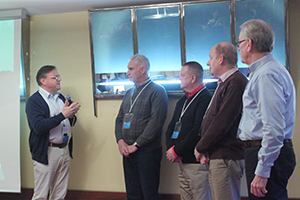 Keynote speakers included two U.S.-based pastors: Gene Tanner, from Valparaiso Church of the Nazarene in Indiana, and David Leeder, from Kokomo First Church of the Nazarene, Indiana; as well as Europe-based leaders: Pastors Antonie and Wilma Holleman from Kerk van de Nazarener Zaanstad (they are both also part-time faculty with EuNC), and Jayme Himmelwright, missionary in Portugal. General Superintendent J.K. Warrick also led several services.
Keynote speakers included two U.S.-based pastors: Gene Tanner, from Valparaiso Church of the Nazarene in Indiana, and David Leeder, from Kokomo First Church of the Nazarene, Indiana; as well as Europe-based leaders: Pastors Antonie and Wilma Holleman from Kerk van de Nazarener Zaanstad (they are both also part-time faculty with EuNC), and Jayme Himmelwright, missionary in Portugal. General Superintendent J.K. Warrick also led several services.
Each speaker pointedly emphasized that discipleship is about relationship with Christ and others, and is not a formula, strategy or program.
“It’s a way of life, a personal, passionate devotion to a person, Jesus Christ, not an adherence to a creed,” Leeder said.
(left to right: Klaus Arnold, Gene Tanner, David Leeder, Arthur Snijders, J.K.Warrick)
Antonie Holleman explained that “a disciple is a person who loves the Lord and his neighbor as himself. Discipleship and holiness is the same thing. Discipleship is not a program.”
Between sessions, participants met in groups by district or ministry to discuss the principles and ideas presented and how they could adapt them to their own culture and context.
The topic of discipleship was timely, many said.
In fact, it was something that “we had just discussed at youth group,” said Monica Boseff, a leader in the Blessings Church of the Nazarene in Bucharest, Romania. She said that just as the Hollemans described trying to implement discipleship across varying generations in their local church, her youth group was seeking ways to connect with older generations.
“It confirmed what we already discussed,” she said. “We really need to know more about discipleship. We want to do it, but we want to be efficient, purposeful, with a vision.”
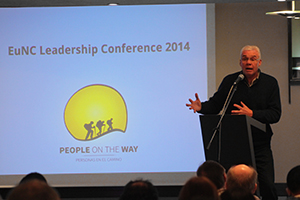 Susana Gomes, a Sunday school superintendent in the Church of the Nazarene in Santa Clara, Coimbra, Portugal, said she hoped to learn key ideas she could take back to her congregation. Her church is already planning to start “life groups” – smaller groups that meet in homes for support and discipleship, and this was an idea that Tanner had presented in one of his sessions.
Susana Gomes, a Sunday school superintendent in the Church of the Nazarene in Santa Clara, Coimbra, Portugal, said she hoped to learn key ideas she could take back to her congregation. Her church is already planning to start “life groups” – smaller groups that meet in homes for support and discipleship, and this was an idea that Tanner had presented in one of his sessions.
“Most of the people that go to [our] church are not within the area of the church, they are spread,” Gomes said. That’s why the idea of having small group meetings in homes was gaining steam.
Pastor Fred Marius, from Église Protestante du Nazaréen de Fontenay-sous-Bois, in Paris, echoed that his church was starting home-based meetings, in line with what was presented at the conference.
“In our return from this conference, we’re going to really make the emphasis on each one choose a cell site to pour themselves into,” he said.
“What I liked about our Leadership Conference is that we had pastors and lay leaders and students together thinking, praying and planning for discipleship in their districts and local churches,” Arnold said. “It is important that discipleship is not just discussed among the leadership but that the local churches get involved and ‘do it.’”
EuNC has coursework dedicated to the topic of discipleship, which should continue to support the development of the ideas for those students who are studying in the program.
“We are offering different courses helping to see our students (and future pastors and leaders) the place and importance of discipleship in the church’s ministry,” Arnold said.
Part of the sessions were recorded. The recordings as well as other material will be posted on the website of the Wesleyan Holiness Digital Library (www.whdl.org) for those who were unable to attend.

